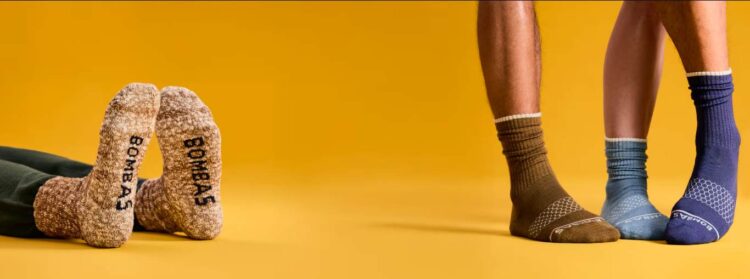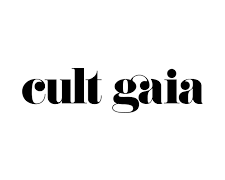If you’ve ever shopped for socks online, chances are you’ve stumbled across Bombas. Known for their snug comfort, honeycomb arch support, and bold promise of “one purchased = one donated”, Bombas has become a household name in the direct-to-consumer (DTC) apparel space.
But behind every booming brand is an important question: who actually owns it?
The answer isn’t as simple as naming one person. Ownership of Bombas has evolved — from its scrappy start by two founders, through a high-profile Shark Tank deal, to a private equity recapitalization that brought in institutional money.
This article breaks down exactly who owns Bombas socks today, how ownership has changed over the years, and why it matters for customers who care about mission-driven companies.
Short Answer: Who Owns Bombas Socks Today?
Bombas was founded in 2013 by David (Dave) Heath and Randy Goldberg in New York City. It remains a privately held company, but its ownership is now shared between:
-
The founders and early team (Heath and Goldberg still hold shares).
-
Daymond John, who invested via Shark Tank in 2014.
-
Great Hill Partners, a Boston-based private equity firm that recapitalized Bombas in 2018 with a majority stake.
-
Other investors and employee shareholders.
As of mid-2025, Bombas is led by CEO Jason LaRose, while co-founder David Heath transitioned to Executive Chairman.
So — Bombas is not public, not owned by a single person, and still combines founder involvement with outside investors.
The Founders: David Heath & Randy Goldberg
The story of Bombas begins with David Heath and Randy Goldberg, two friends who shared an interest in social entrepreneurship.
-
David Heath: Before Bombas, Heath worked in media and marketing. His inspiration came after reading that socks are the most requested clothing item at homeless shelters.
-
Randy Goldberg: A marketing strategist by background, Goldberg brought branding expertise and helped craft Bombas’ now-famous mission-driven identity.
The two set out to redesign the everyday sock. After months of research into materials, seamless toes, and arch support, they launched Bombas on Indiegogo in 2013, raising over $140,000 — seven times their original goal.
From day one, Bombas had its trademark “buy one, give one” pledge: for every item sold, the company would donate a specially designed item to someone experiencing homelessness.
Shark Tank and Daymond John’s Investment
Bombas got its big break in 2014 on ABC’s Shark Tank.
-
The founders pitched their vision and socks, impressing the panel.
-
Investor Daymond John (best known as the founder of FUBU) struck a deal: $200,000 for a 17.5% stake.
Daymond’s involvement proved pivotal. His background in apparel gave Bombas instant credibility. After the episode aired, sales skyrocketed — Bombas reportedly sold $1.2 million worth of socks in just a few months after the show.
Today, John’s exact percentage is smaller (due to dilution from later fundraising), but his role as an early investor and advisor remains part of Bombas’ DNA.
Private Equity Recapitalization: Great Hill Partners
Fast forward to 2018. Bombas had grown into a $100M+ revenue brand and needed more capital to scale. That’s when Great Hill Partners, a Boston-based private equity firm, stepped in.
Great Hill executed what’s called a majority recapitalization. This doesn’t mean the founders sold everything and walked away. Instead, they sold a portion of their shares, brought in outside investors for growth capital, and likely kept a meaningful stake.
Key facts:
-
Great Hill manages over $12 billion in capital.
-
Their other consumer investments include The RealReal, Wayfair, and YogaWorks.
-
With Bombas, the goal was to fuel expansion beyond socks (into underwear, t-shirts, and international markets).
For customers, this raised a question: would Bombas’ social mission survive under private equity ownership? So far, the answer appears to be yes.
Other Investors and Funding
Beyond Daymond John and Great Hill Partners, Bombas has attracted other backers over the years.
-
Early funding: Indiegogo supporters + friends & family.
-
Venture investors: According to PitchBook, investors like Third Point Ventures, G Squared, and Medici Capital Partners have participated in funding rounds.
-
Employee shareholders: Like most fast-growing startups, Bombas has likely offered stock options to employees, giving staff partial ownership.
This means Bombas’ ownership is a patchwork of founders, investors, and employees — a normal structure for a successful DTC startup.
Timeline of Bombas Ownership
Let’s map the key ownership and growth moments:
-
2013 — Founded by Heath & Goldberg in New York. Indiegogo raises $140k+.
-
2014 — Appears on Shark Tank; Daymond John invests $200k. Sales jump to $1.2M within months.
-
2016 — Hits $50M in revenue.
-
2018 — Majority recapitalization by Great Hill Partners. Ownership broadens.
-
2020 — Expands into t-shirts and underwear.
-
2022 — Bombas reaches $300M+ in annual revenue (according to industry reports).
-
2024 — Celebrates 100M+ donation milestone.
-
2025 — Jason LaRose becomes CEO; David Heath moves to Executive Chairman.
Who Runs Bombas Today?
As of 2025:
-
Jason LaRose (CEO): A retail veteran with experience at Under Armour and Finish Line, LaRose now oversees day-to-day operations.
-
David Heath (Executive Chairman): Still involved, but now focusing on mission, long-term strategy, and brand direction.
-
Randy Goldberg (Co-Founder, Chief Brand Officer): Continues to shape Bombas’ marketing and storytelling.
-
Board of Directors: Includes Great Hill Partners’ representatives and outside advisors.
This mix reflects a classic transition: founders remain as cultural anchors, while professional executives scale the business globally.
What Ownership Means for Customers
You may wonder — why does ownership even matter to me as a customer?
Here’s why:
-
Mission Integrity: Despite private equity involvement, Bombas still upholds its buy-one-give-one pledge. As of 2025, the company has donated over 150 million items to shelters and organizations across the U.S.
-
Pricing: Bombas socks cost more than average ($12–$20 per pair). Some of that premium goes toward donations. Ownership structure affects whether that model is sustainable.
-
Trust: Knowing the company isn’t public (yet) means less short-term shareholder pressure compared to a publicly traded brand.
So far, Bombas’ ownership mix hasn’t eroded its mission. If anything, investors helped expand the model to more categories and donations.
Is Bombas Publicly Traded?
No. Bombas is a privately held company. That means:
-
You cannot buy shares of Bombas on the stock market.
-
Ownership is limited to private investors, founders, and employees.
-
If Bombas ever files for an IPO (Initial Public Offering), that could change — but as of 2025, no such plans are public.
Myths and Misconceptions
Let’s bust a few myths:
-
“Daymond John owns Bombas.”
Not entirely. He invested early, but later funding diluted his stake. He remains a notable investor, not the sole owner. -
“Bombas is a nonprofit.”
False. Bombas is a for-profit company with a strong social mission. Donations are part of its business model, but profits go back to shareholders. -
“Private equity ruined Bombas.”
Not true. While some worry PE firms push profit over purpose, Bombas continues its donation program and has expanded giving partnerships.
👉 Looking to save? Check our Bombas discount codes
FAQs About Bombas Ownership
Who started Bombas?
David Heath and Randy Goldberg in 2013.
Does Daymond John still own Bombas?
Yes, but his stake is smaller than at first due to later fundraising.
Who owns Bombas today?
A mix of founders, employees, early investors (like Daymond John), and Great Hill Partners.
Is Bombas publicly traded?
No, it is privately owned.
How many items has Bombas donated?
Over 150 million items to shelters and nonprofits.
Final Thoughts
Bombas ownership has evolved from a founder-driven startup to a private equity-backed mission brand. Today, it balances founder influence, professional management, and institutional capital.
For customers, what matters most is that Bombas’ mission remains intact: every purchase supports someone in need.
So while you may not be able to buy a slice of Bombas stock just yet, you do take part in its ownership story every time you slip on a pair of its socks.



No Comments
Leave Comment